Jan. 6 committee to show texts with Trump aides, play depositions of family members
Investigators say chief of staff Mark Meadows's documents played a key role.
With the Jan. 6 committee slated to hit prime time Thursday, it's expected Americans will learn more about the committee's investigative work through a series of never-before-seen videotaped depositions from some of former President Donald Trump's closest aides and family members.
Former White House chief of staff Mark Meadows – who turned over some of his text messages to the committee – has been described by congressional sources as an "MVP" of the hearings, as his messages have provided somewhat of a roadmap for investigators.
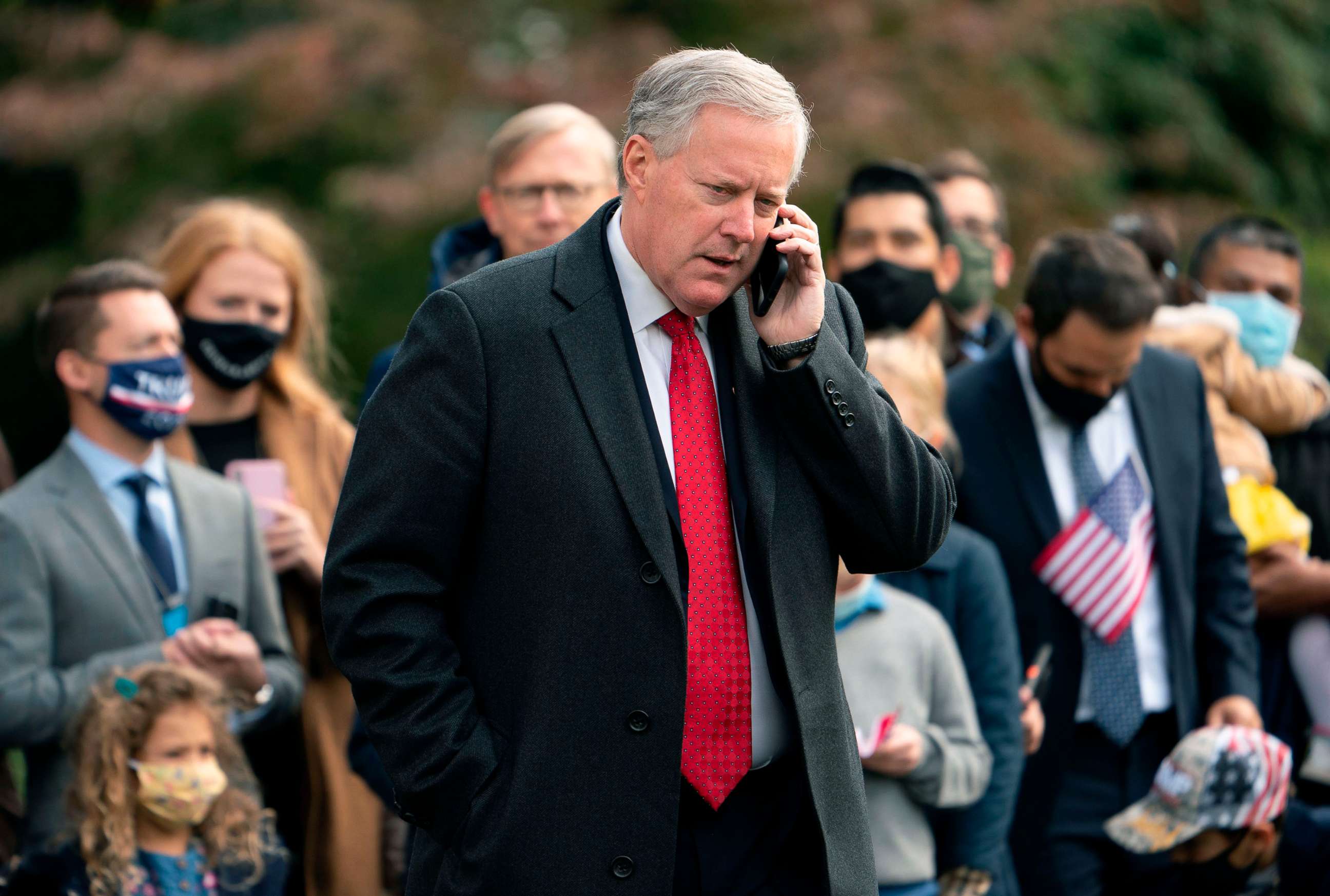
Here's some key players to watch for as the panel kicks off a series of major public hearings.
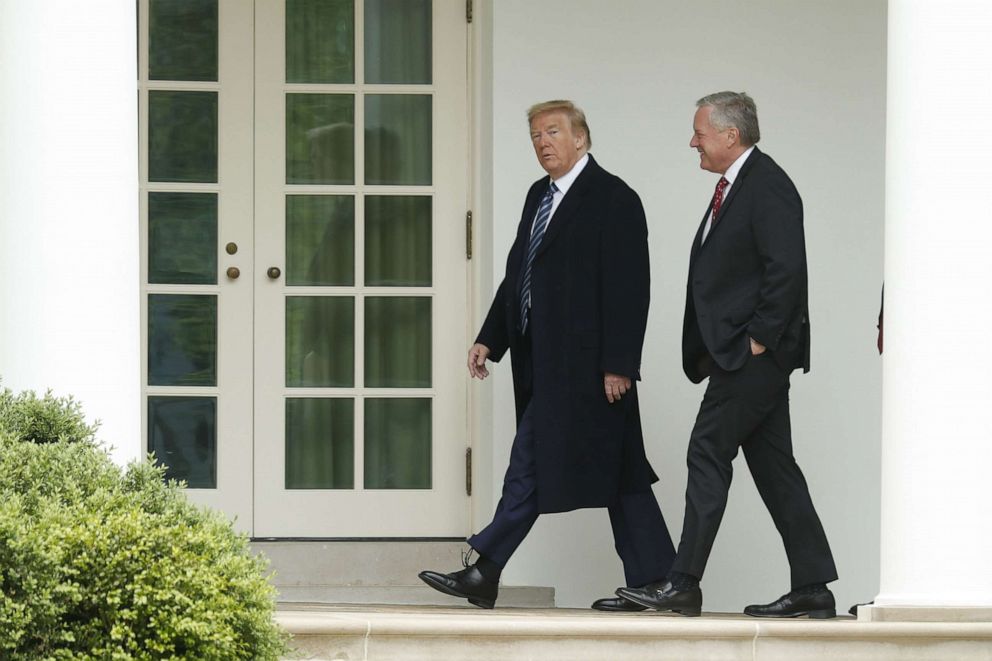
Former White House chief of staff Mark Meadows
Meadows selectively turned over more than 9,000 text messages and emails to the select committee revealing his communications with a range of activists, GOP lawmakers, former White House and campaign officials and Ginni Thomas, the wife of Supreme Court Justice Clarence Thomas. The documents have been foundational to the committee's investigation, especially in reconstructing the timeline of activity behind closed doors at the White House between the election in November 2020 and Jan. 6, 2021.
Meadows' text messages show Republicans texting him on Capitol Hill the day of the riot, including Rep. Marjorie Taylor Greene, R-Ga., texting Meadows to "Please tell the President to calm people This isn't the way to solve anything."
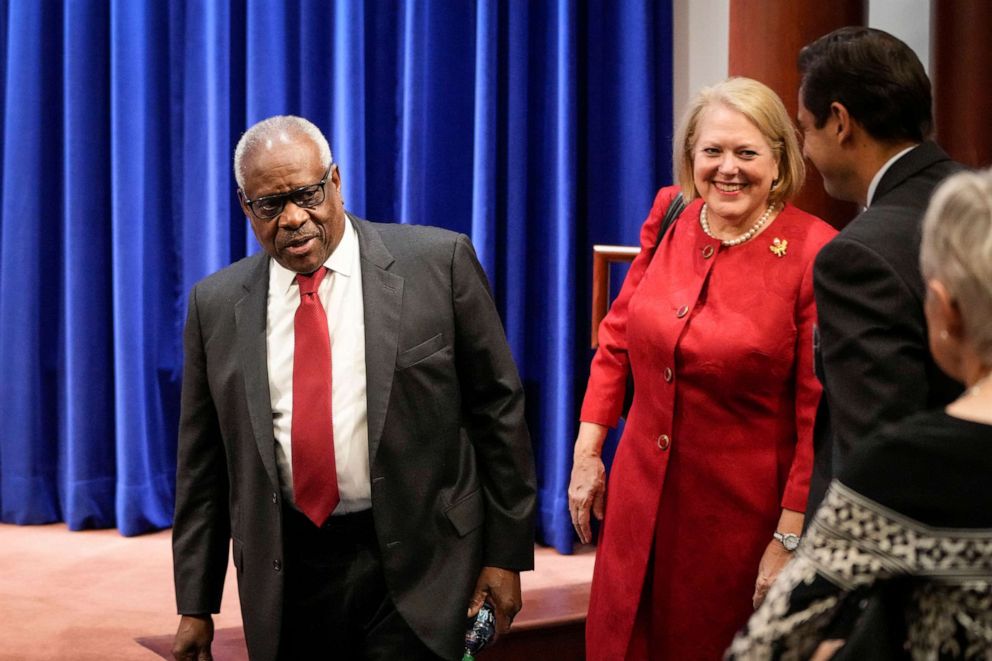
In the fall of 2020, after Joe Biden defeated Donald Trump, Ginni Thomas repeatedly urged Meadows to attempt to overturn the election results, according to text messages obtained by congressional investigators. "Help This Great President stand firm, Mark!!!" Thomas wrote to Meadows Nov. 10 after the election was officially called for Biden.
Meadows, who at first said he would not be cooperating with the committee's subpoena -- before reversing course and providing some of the documents -- including those 9,000 text messages -- he ultimately decided not to fully cooperate. The House of Representatives voted to hold him in contempt of Congress and referred the matter to the Department of Justice.
Last week, the DOJ informed the general counsel for the House of Representatives that they would not be prosecuting Meadows for not fully cooperating with the Jan. 6 committee, sources familiar with the correspondence told ABC News.
In a statement the committee called that decision "puzzling."
A top aide to Meadows, Cassidy Hutchinson, sat for three depositions with committee investigators, sources have told ABC News. Hutchinson told investigators that Meadows was warned about potential violence on Jan. 6, the sources said, but it's not clear from the deposition excerpts what, if anything, Meadows did with that information. As the public Jan. 6 hearings were about to begin, Hutchinson hired a new lawyer, a source familiar with the matter confirmed to ABC News.
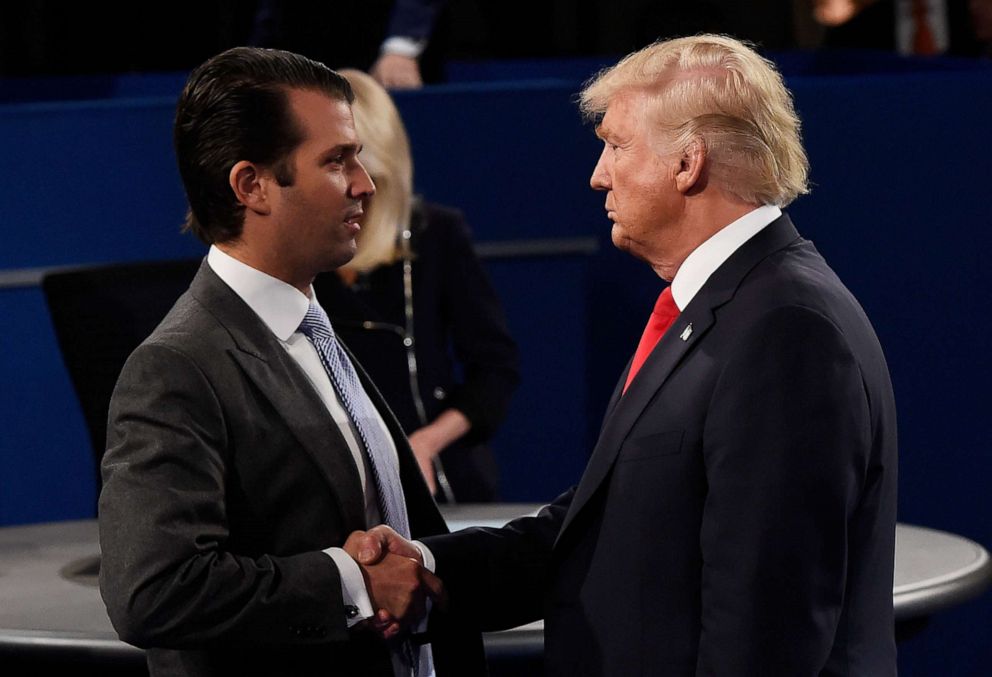
Donald Trump's family
The committee heard from Trump's eldest son, Donald Jr., in May, making him the latest member of the Trump family to meet with the committee after Ivanka Trump and Jared Kushner, both of whom served as senior White House advisers to Trump, were also interviewed.
Kimberly Guilfoyle, Trump Jr.'s fiance, has also met twice with the committee. Sources said that her second interview was at times contentious and focused in part on the fundraising efforts around Trump's "Save America" rally on Jan. 6, 2021.
Trump Jr.'s text messages are among those that Meadows turned over to the committee.
"He's got to condemn [the riot] ASAP," Trump Jr. told Meadows in a text message, according to Rep. Liz Cheney, R-Wyo., the vice chair of the panel who has quoted extensively from text messages sent to Meadows, among others. "I'm pushing it hard," Meadows replied. "I agree."
"We need an Oval address," Trump Jr. said in a follow-up message. "He has to lead now. It has gone too far and gotten out of hand."
Republican members of Congress
The committee has issued subpoenas to House Minority Leader Kevin McCarthy along with four other members of Congress: Reps. Jim Jordan of Ohio, Andy Biggs or Arizona, Mo Brooks of Alabama and Scott Perry of Pennsylvania – all of whom have indicated they have no intention of complying with the panel's investigation.
McCarthy – and the other House Republicans subpoenaed – had previously rejected the committee's voluntary requests for their cooperation. In April, recordings surfaced of McCarthy blaming Trump for the Jan. 6 riot and suggesting that some GOP lawmakers were inciting violence and should be kicked off social media platforms.
Their defiance of the subpoenas could prompt a legal battle with Republicans who many expect to be in the majority next year.
The subpoenas marked a dramatic escalation in the committee's tactics and followed weeks of internal debate over whether to try to force Republicans to testify behind closed doors about their conversations with Trump and involvement in various parts of the effort to attempt to overturn the election and contest the certification of the results.
It's unclear what steps the committee plans to take for Republicans' refusal to cooperate.
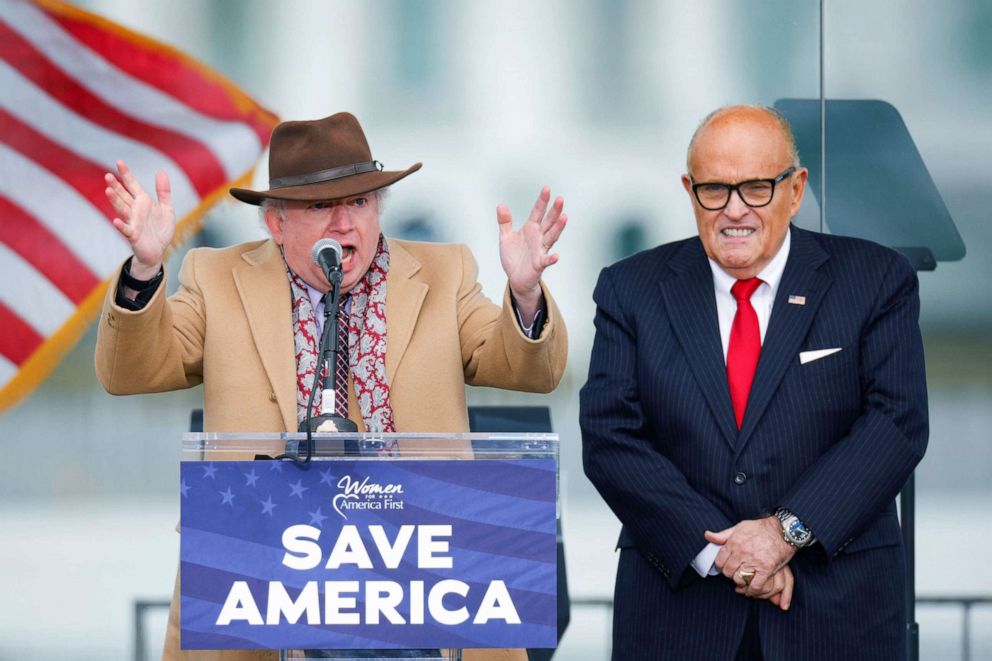
Trump's election lawyers
Just one day before the first major public hearing was slated to get underway, a federal judge ruled that another batch of John Eastman's emails be turned over to the Jan. 6 committee. Eastman, a right-wing lawyer who drafted a plan for former President Trump to cling to power by falsely claiming then-Vice President Mike Pence could reject legitimate electors during the 2020 presidential election.
Of the emails Judge David Carter is ordering be turned over to the committee, one specifically he says could show evidence that he says likely constitutes a crime. This is the second such time that the judge has made such a determination. The first time, Carter said that based on the evidence he had reviewed, it was "more likely than not" that Trump committed felony obstruction in effort to overturn the election.
ABC News reported exclusively that Eastman was recently part of a small group of Trump allies who secured a private meeting in March to try to persuade the Republican leader of the Wisconsin state assembly to decertify Biden's win. Eastman was subpoenaed in November 2021 by the committee and had been rejecting the panel's request for documents, claiming attorney-client privilege, until Carter ordered most of them turned over.
Rudy Giuliani, former President Trump's former lawyer, also recently spoke to committee investigators for a taped deposition that lasted nearly eight hours. Sources told ABC News that Giuliani – who represented Trump during the Mueller investigation and led legal challenges to the 2020 election results across the country on Trump's behalf – did, at times, invoke attorney-client privilege.
In addition to Eastman and Giuliani, a number of other lawyers were involved in the election challenges, including former Trump attorneys Sidney Powell and Lin Wood.




